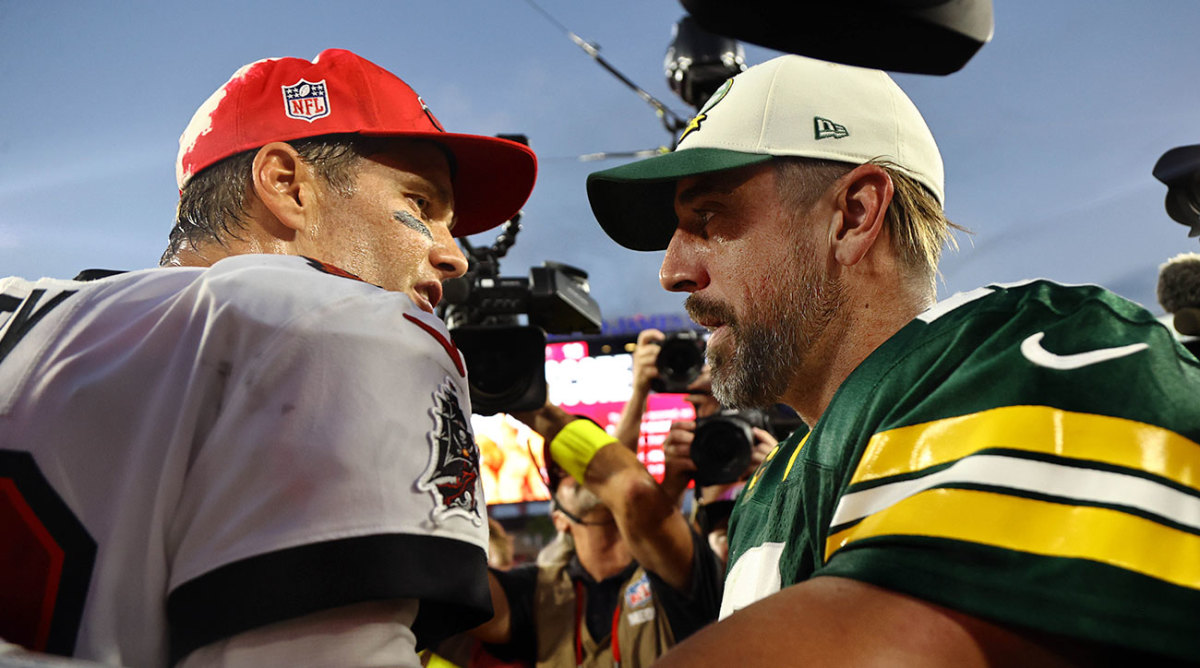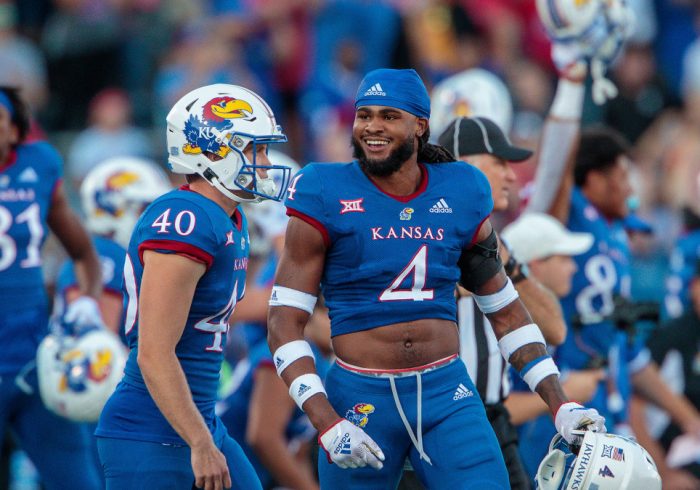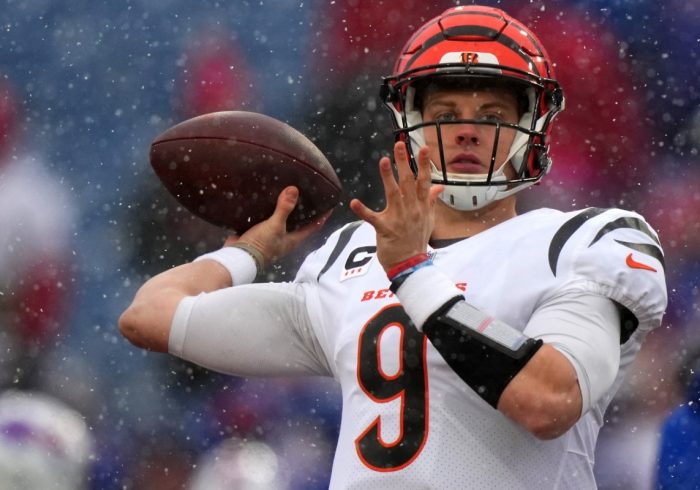How brave of me to take up the case for Tom Brady and Aaron Rodgers, two of the greatest quarterbacks in NFL history, who seem to be struggling now. It’s a difficult job, but someone has to do it.
Football take-making 101 gives me license to build a completely imaginary argument about Brady’s and Rodgers’s demises, built largely on the knee-jerk opinions of angry fantasy football managers and television yakkers who are paid by the contrarian opinion. It allows me to defend them relentlessly, as if I, and only I, believe. It gives me liberty to recycle this courageous piece of writing on social media tirelessly when they once again become the players we know they are capable of being. It’s honestly a great business.
But I can also do you a favor and save you some time: The Buccaneers and the Packers are going to be fine, even though they both dropped below .500 this week by losing inexcusable games to two of the worst teams (the Panthers and Commanders) in the NFL. Even though the Packers’ chances of reaching the postseason just dipped below 30%, according to FiveThirtyEight’s playoff predictor model.
I think, deep down, we all know these ships will be righted. While everyone eventually hits the winter of their career, and Brady has been lingering in his autumn for more than a decade, neither of them are in a position where they’re in danger of missing the playoffs (the Buccaneers are still tied for first in the NFC South, while the Packers trail only the Vikings and remain within a game of the final wild-card spot). Neither of them are in a position where we should assume that the wide array of ideas and experiences they’ve used to thrive for nearly four decades between them is all of a sudden irrelevant.
It’s worth noting that defenses often respond to sustained successes over time. For example, Rodgers is operating in an offense that is now run by half the teams in the NFL, and they are breaking in two rookie wide receivers (Romeo Doubs and Christian Watson) who are trying to replace Davante Adams. Defenses have now had three full offseasons to prepare for this moment, which leaves Green Bay in a week-to-week process to figure out what is being done to them, and how. And within the context of their scheme, they can adjust to evolutions made specifically to stop them. The NFL is currently on pace to have its lowest-scoring season since 2017, with its lowest reception touchdowns per game average since ’08.
Brady has called it “bad football” but we could also just call it what it is: the moment when defensive growth meets offensive stagnation.
So, at least for now, it seems like a problem not of diminishing skill, but of nestling between a rock and a hard place, of finding out how to extend the broad walls of their comfort zone to find a niche that will more effectively move the football. This is made more difficult when injuries to specific players in specific positions have made certain plays almost unrunnable. Last year, the Buccaneers ran a vast majority of their running plays between the left guard and the center (122 attempts in total). This year, Tampa Bay has been forced to start new players in both of those spots, both of whom are among their weakest links on the line. The Buccaneers’ run game is far more plodding this year and equally distributed across the gaps. In both places where, to some degree, the run game is married to the passing game, having a disjointed running game impacts the entire operation like a deep coding error that warps the functionality of an entire website.
If that is the case, who are the two offensive players currently in the NFL whom we would bet most feverishly on when it comes to their mental acuity specifically? And their ability to thrive in name-specific offenses that can transcend the schemes they are currently in and move the ball in crunch time against almost any defense? (By name-specific offenses, we mean a version of their scheme they take with them regardless of coordinator, like how, for example, wherever Peyton Manning went, regardless of who the coordinator was, it was called the Peyton Manning offense.)
I could argue that their lack of mobility has left them behind. Nearly all of the top-10 quarterbacks in the NFL right now in EPA per play give their team some kind of zone-read option in the running game. They can conflict ends and more easily evade free runners. But we could just as easily argue that Brady and Rodgers both have a complete and total understanding of a marathon 17-game season. And while every game is critical, both have had seasons completely springboard from an aha moment where the proper sticking together of scattered puzzle pieces yields a deep run in the playoffs.
Brave old me will assume that this year it’s just a little bit harder and taking a little bit longer for them to figure it all out. Because there’s no chance I’d write either of them off this early.
More NFL Coverage:



